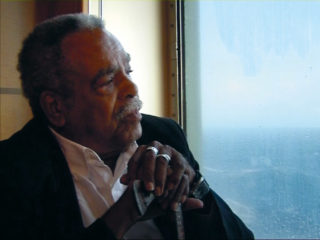Asad Raza (born in Buffalo, USA; lives in New York and Leipzig) combines experiences, human and non-human beings, and objects in his work. Often exploring the idea of dialogue and rejecting disciplinary boundaries, Raza’s practice is multifaceted, comprising the roles of artist, producer, curator, and writer. He consistently conceives of exhibitions as metabolic entities in which an active scenario must be constructed.
For Untitled (plot for dialogue), he installed a tennis-like game in a deconsecrated sixteenth-century church in Milan, complete with coaches and iced tea. Root sequence. Mother tongue--exhibited at the 2017 Whitney Biennial, the Rockbund Museum in Shanghai, and the Grimaldi Forum in Monaco--is a forest of twenty-six living trees with human caretakers as well as objects belonging to them. Schema for a school is an ongoing series of experimental schools realized inside exhibition settings, first shown at the Ljubljana Graphic Art Biennial in 2015, and most recently at Prelude to the Shed in New York City.
Raza’s works often inhabit or create intimate settings. The Bedroom, first shown at the 2018 Lahore Biennale, creates a temporally indistinct space that invites teenagers to sing and play chess with visitors. For home show, which took place at his apartment in New York, Raza asked friends, family and artists to intervene in his own life, and then gave a personal tour to each visitor over the show’s five weeks. Raza also explored exhibition-making in a domestic house at the Villa Empain in Brussels in 2016-7, where he co-curated the shows Mondialité (with Hans Ulrich Obrist), Décor, Répétition, and Seeing Zen. With Obrist, he is curating an ongoing series of exhibitions on the legacy of Édouard Glissant, the latest of which, Trembling Thinking, will take place in 2018 at the Americas Society, New York.
Raza's collaborative practice includes serving as a dramaturge for group exhibitions such as 2014’s A stroll through a fun palace in the Venice Architecture Biennale, and Solaris Chronicles for LUMA Arles. From 2009-2013, he worked frequently with Tino Sehgal, serving as the chief producer for Sehgal’s exhibitions at the Guggenheim Museum (2010) and Tate Modern (2012). From 2003-2007, he was active as a political activist and organizer with several organizations in New York City. Of Pakistani background, Raza studied literature and filmmaking at Johns Hopkins and New York University, where he helped organize a labor strike in 2005. Raza has edited or authored six books, and his writing has appeared in Jan Mot Newspaper, Kaleidoscope, modern matter, n+1, NERO, The New Yorker, The New York Times, Spike, and Tennis magazine.
